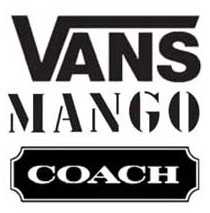- California Assembly OKs highest minimum wage in nation
- S. Korea unveils first graphic cigarette warnings
- US joins with South Korea, Japan in bid to deter North Korea
- LPGA golfer Chun In-gee finally back in action
- S. Korea won’t be top seed in final World Cup qualification round
- US men’s soccer misses 2nd straight Olympics
- US back on track in qualifying with 4-0 win over Guatemala
- High-intensity workout injuries spawn cottage industry
- CDC expands range of Zika mosquitoes into parts of Northeast
- Who knew? ‘The Walking Dead’ is helping families connect
Global fashion brands market directly to Korean consumers
By Rachel Lee
Global fashion brands have shifted their business strategies here by canceling contracts with local distributors and doing marketing on their own to strengthen brand images.
According to industry sources, some of the world’s big names like Vans and Mango have begun to appeal to Korean consumers with their original brand identity and image, which were undervalued by the distributors for the sake of business profits.
“With our distributor ABC Mart, it is true that they failed to show our brand’s DNA, which are action sports, music, arts and street since they only focused on achieving a sales goal,” said a marketing manager at Vans.
“So we ended up being positioned in the country as a shoe maker that offers an affordable range of products. Our products were particularly popular among the young generation for the cheap price.”
Vans, an American shoe manufacturer founded in 1966, worked with shoe shop ABC Mart for 10 years since 2001, and re-entered the market solely in January this year, starting its aggressive marketing and distribution strategies.
“Vans now operates franchises in Korea, distributing the products in various ways rather than the previous exclusive channel. We have also begun to focus on branding, rather than generating a certain level of sales. We are aiming to properly appeal our brand’s originality to consumers by launching big events like House of Vans and Go Skateboarding Day,” said the manager.
Go Skateboarding Day is an official annual holiday conceived by the International Association of Skateboard Companies to promote skateboarding. Every third or fourth week of June, skateboarders celebrate Go Skateboarding Day. It is a celebration of the pure exhilaration, creativity, and spirit of one of the most fun activities in the world.
“Vans swung by the first House of Vans in Korea in February, which took place in the VLUF warehouse in Seongsu-dong and featured punk bands. We are planning to throw another event next month,” said the manager.
The shoe maker has opened a total of 12 franchises nationwide and entered the country’s major department stores including Galleria, Hyundai Department Store and other shopping malls. The company plans to open more shops in Shinsegae Department Store and outlet malls.
Spanish SPA brand Mango is one of the fashion brands that re-entered the local market. Mango Korea was established last year after separating from its distributor Samsung’s Cheil Industries.
According to Mango, it started its own effective marketing after it acquired five stores run by the local distributor last year. The company has opened four more stores in the country and plans to launch one this year in the country’s affluent southern area in Seoul.
Coach, an American women’s handbag maker, also left its distributor Shinsegae International last year.
The brand has long been known in the country as an affordable handbag manufacturer, but the company produces a wide range of goods like wallets, shoes and jewelry.
According to the company, it aims to introduce its various product categories to local consumers and enhance its competitiveness in the market by reinforcing its men’s fashion and shoe items.
Industry experts view this phenomenon a result of marketing failure by distributors.
“Some global fashion brands realized they had lost their brand and originality when they entered the market, which is mostly caused by importers focusing on maximizing sales and lacking understanding of the brands,” said an analyst who declined to give her name due to the sensitivity of the issue.
“It will need a considerable amount of time to figure out whether they will do better without the distributors, but at least they are properly positioning themselves in the market.”













![일본 사도광산 [서경덕 교수 제공. 재판매 및 DB 금지]](http://www.koreatimesus.com/wp-content/uploads/2024/07/PYH2024072610800050400_P4-copy-120x134.jpg)


